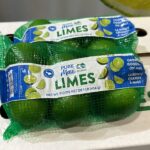Limoneira announces strategic shift to citrus “grower partner” fruit

Limoneira Company has signaled a major shift from its own production to a grower partner model for citrus to combat the impact of “pricing volatility and farming costs”, with the California-based business revealing it will sell select global assets.
In its second-quarter 2022 results, Limoneira reported growth of 4% to $47 million and $5.8 million of adjusted EBITDA. According to the company, the growth was driven by higher avocado, orange and specialty citrus revenue, with avocado pricing continuing to “outperform expectations” with pricing up by 50% compared to the same period of 2021.
However, the company said the second quarter gain was offset by “challenging” lemon pricing as the US market works through a surplus inventory, as well as the impact of rising labor costs and higher packing and supplier costs.
In an Earnings Call for investors to support the launch of the company’s second-quarter results for fiscal year 2022, Limoneira President and CEO, Harold Edwards, announced the movement of the firm’s One World of Citrus model to an “asset lighter” focus.
The core of the strategy will be expanding grower partners, with 70% of total lemon volumes being sourced from grower partners and the remaining 30% being from company-owned production.
At the same time, Edwards said Limoneira would further develop its grower services to support the recruitment of more allied producers.
In one of the first actions under the change of strategy, Limoneira announced a new irrigation and water conservation programme at grower partner Associated Citrus Packers ranch in Yuma, Arizona which will see a reduction in the site’s current 900 acres of lemon orchards to 700 acres and the freeing up of 200 acres for other crops.
Limoneira said it expected to add more producers in the region to its grower partner network during the course of 2022.
Further, the company will be reducing its investments outside North America, while increasing avocado production in Ventura County, California, which will be packaged and marketed as a complement to the One World of Citrus line.
During the call, Edwards revealed a plan to sell-off Limoneira’s company-owned acerage in Argentina for “political risk reasons”, as well as the monetisation of a percentage of its production in Chile, which will be used to finance development of a new packing operation in the country.
He said: “We believe that this new strategic plan will result in an Asset Lighter business model, dramatic debt reduction, reduced volatility and an increase in EBITDA and earnings per share, higher return on invested capital, increase in our quarterly dividend, higher ESG scores, expansion of global fruit packaged to marketing by Limoneira, and lastly, an increase in the growing, packing, marketing and selling of avocados.”
Also participating in the call, Limoneira CFO Mark Palamountain revealed a drop in fresh lemon sales, from $28.7 million in the second quarter of 2021 to $27.3 million in the same period of 2022, while the average price per carton also fell from $18.79 to $17.57.
Palamountain said: “Lemon pricing has remained challenging for the first half of fiscal year 2022 as we've dealt with adverse weather on the East Coast as well as the emergence of the Omicron variant creating an oversupply of lemons in the marketplace.
“We are seeing the lemon export market to begin to returning normal levels, however is expected to be a slower recovery and so while we expect improvement in the second half of this year, it is still expected to be down year-over-year.”
More positive news was to be found in Limoneira’s avocado business, with second-quarter 2022 revenue up to $3.6 million compared with $2.7 million during the same stage a year before and average carton prices rising to $1.90 from a previous $1.26.
Orange revenue was also up to $2.6 million from the $1.4 million recorded for the second-quarter of 2021, although average pricing dropped to $7.98 per carton from $9.12.
Looking ahead, Edwards said he expected lemon pricing to remain pressured during the remainder of fiscal year 2022 until the full reopening of Asian markets following the Covid-19 pandemic. The situation, he added, would likely be alleviated by strong profitable avocado demand that was forecast to continue into the third quarter.









































